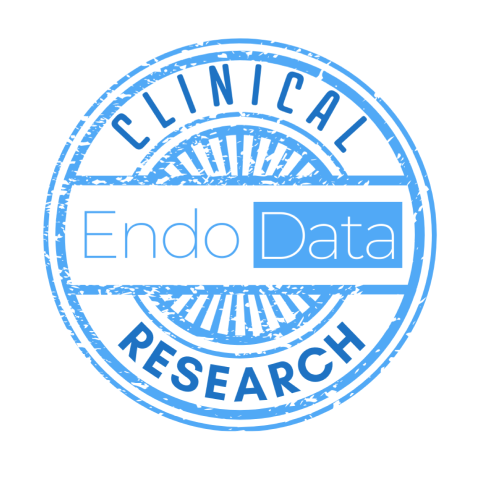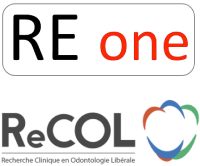
EndoData is designed not only to support clinicians and their teams but also to facilitate the use of routinely collected data for clinical research. Its unique structure includes research-specific features that simplify and enhance study implementation:
An e-CRF intergrated into the patient file
One of EndoData’s features is the integration of an electronic Case Report Form (e-CRF) directly into the patient’s medical record. This integration simplifies data collection and streamlines the inclusion of new patients in studies, making the investigator’s role more efficient.
Pseudonymized data extraction
EndoData ensures that patient identification data is kept separate from medical data. This allows for easy pseudonymized exports of databases, ensuring compliance with privacy regulations. Imaging files are also automatically pseudonymized to enhance security and data usability in research.
Legal documents sent automatically
The software automatically sends legal documents to patients involved in studies.
Europe and particularly France have been committed to an ethical approach to protecting health data. In a context of exponential deployment of digital tools, authorities ensure that innovation does not develop at the expense of patient safety. To this end, strict regulations have been put in place that guarantee the security of medical data and the freedom of patients included in any study to have access to their data.
These regulations often bring significant administrative burdens for sponsors and investigators, which can hinder the implementation of clinical studies in dentistry—especially in private practices. EndoData provides the technological resources needed to alleviate these challenges, by ensuring a compliance with French and European regulations and a reduction in administrative obstacles for sponsors and investigators.

The complexity of endodontics involves countless parameters influencing treatment outcomes, making it challenging to estimate prognoses or identify all contributing factors. By aggregating daily practice data from diverse practitioners, EndoData empowers the scientific community to tackle these challenges collaboratively.
Dentistry uses a large number of medical devices, subject to the new European regulations, that require, among other things, the collection of real-life clinical data. EndoData is a suitable tool for this type of study, it combines e-CRF and the ability to find patients treated with a given medical device.
EndoData users can generate detailed activity data reports, allowing for the identification of candidates for retrospective studies.
Demander une démoIn collaboration with the clinical research association ReCol, REone is a multicenter prospective clinical study involving 10 private practitioners and 10 hospitals. This study is proof that it is possible to unite practitioners with diverse practices around the use of the same software that meets the needs of each. The ReCol association made it possible to set up this study in compliance with French regulations.
Data collection was done as part of a daily exercise over a one-year period. Practitioners accustomed to using EndoData easily included the 1735 teeth from 1080 patients and provided a large number of variables. This shows the possibility of collecting high-quality data in a sustainable way. The collected data is currently under analysis and promises to address numerous research questions.

For further information contact us: cauris@endodata.fr
For more information: www.reone.info
To discover the ReCol association: www.recol.fr
Demander une démoTo comply with European regulations on medical devices (MDR), the Septodont company is promoting two 10-year retrospective clinical studies focusing on BioRoot and Biodentine materials.
These class III medical devices have been on the market for a long time and even if they satisfy their users, their performance and safety must be constantly re-demonstrated by analyzing clinical results obtained in real life. In collaboration with the ReCol association, these studies have been set up among private and hospital-based practitioners.
EndoData is a central tool in these studies. It allows to identify patients who have been treated with these materials for potential inclusion. If the patient meets all the criteria, the legal documents are automatically sent to him. Finally, the e-CRF is contained in the software for the collection of clinical data and X-rays. As required by the regulations, this study is monitored by an external DPO (data protection officer) who ensures compliance with data security.

For further information contact us: cauris@endodata.fr
Demander une démo